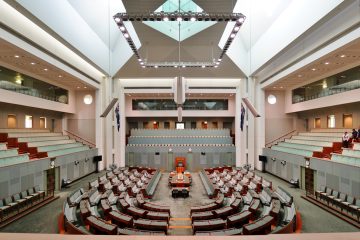
Australia’s Unprecedented Coalition Politics: Unpacking Scott Morrison’s Ministerial Self-Appointments
This summer it transpired that during the pandemic previous Prime Minister (PM) of Australia, Scott Morrison, had secretly appointed himself as minister to five ministries. By the end of his mandated term in 2022, he enjoyed the statutory powers to manage six of the 14 government ministries, often unbeknownst to the already appointed ministers and the public. What makes this an especially untoward governance strategy, is that the Morrison government was a coalition government. More precisely, Morrison’s party, the Liberal party, shared government office with the National party. Two of the five ministries Morrison appointed himself to, were originally assigned to the National party. He seemingly did so for the sole purpose of influencing their governance decisions. The report of …
OxPol Blogcast Episode 1: The Fixed-term Parliaments Act
Welcome to the OxPol Blogcast, a podcast where we will be sharing research, analysis, and experiences from members of the University of Oxford’s Department of Politics and International Relations. On each, episode we will talk to a guest about a piece they’ve written for the OxPol Blog. Then, we’ll discuss their larger research agenda, their insights on conducting political science, and their time at Oxford. On the inaugural episode of the OxPol BlogCast, host Chase Harrison talks to DPhil student Christine Sheldon about the Fixed-term Parliaments Act. They go on to discuss her research on coalitions and her work on natural speech processing. Read Christine’s original blog post here
Undoing the Fixed Term Parliaments Act
In the month of November, Boris Johnson’s government will most likely instate a committee review of the Fixed Term Parliaments Act (FTPA) with the ultimate goal of fully repealing it. This Act, introduced in 2011, was supposed to fix the date of the general election to be every five years. Its planned repeal is part of a number of sweeping constitutional reforms that would empower the British executive over Parliament, which the Conservative Party vowed to push for in its 2019 electoral manifesto. With the ongoing global pandemic and the protracted Brexit talks with Brussels, the Conservative’s plan to repeal the FTPA have largely flown under the public’s radar. Yet if a repeal goes through, it would have a significant …










